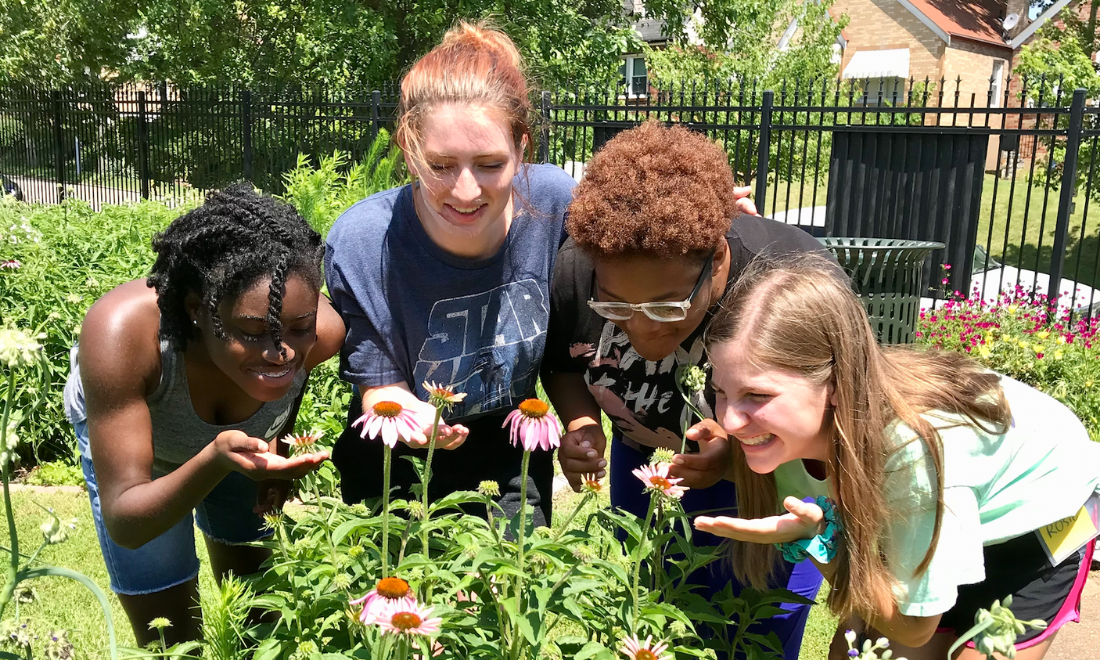Nonprofit Spotlight: Pop Up Prairie
Did you know? St. Louis is uniquely positioned at the confluence of two major rivers, and biodiversity from the east and west collide here. Our city is also on the migratory path of many important species such as the Monarch butterfly.
According to the St. Louis University Billiken Bee Lab, there is perhaps more native bee diversity concentrated inside the city than anywhere else in North America. Even so, a study by the Bee Lab revealed that bee population density in St. Louis is lowest in the Tilles Park area. This is most likely due to the number of well-manicured lawns that provide little to no functional habitat.
Enter: Pop Up Prairie. Co-founded in 2015 by siblings Leigh and Jeff Harris, Pop Up Prairie manages prairies in the city of St. Louis that provide critical habitat for monarch butterflies and other species of concern.
“Prairies really need our support to be brought back from the brink of extinction,” said Jeff.
To illustrate: Illinois was originally home to 14 million acres of forest and 22 million acres of prairie. Now, acreage has dwindled to 2–5 million of forest and 4,000 acres of remnant prairie: a shocking 99.98% decrease in prairie habitat.
Pop Up Prairie’s mission is to establish and manage native prairie plantings in public spaces that serve as demonstration gardens and educational opportunities for our community. Leigh serves as Pop Up Prairie’s Executive Director, and Jeff—who holds a Master’s degree in forestry—is its Urban Resources Manager.
As a result of the bee population density study, Pop Up Prairie was asked by the neighborhood association, Alderman, and Saint Louis University to install a pollinator garden in an effort to increase biodiversity.
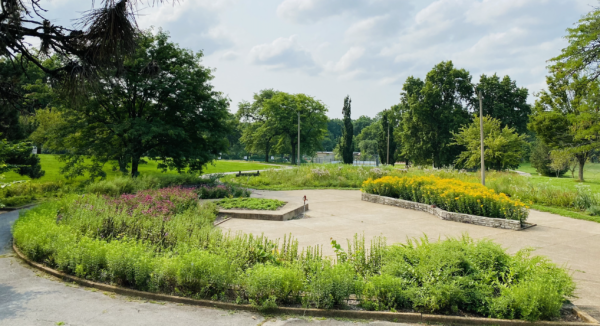
In 2017, a city-funded, 10,000 square foot garden was installed. The garden was planted with 44 native species such as columbine, long-headed coneflower, and marsh milkweed. Bees, butterflies, beetles, and nocturnal pollinators such as bats and moths have returned to this space. This pocket of biodiversity is “bustling with life from the top down and represents the return of a micro ecosystem,” said Jeff.
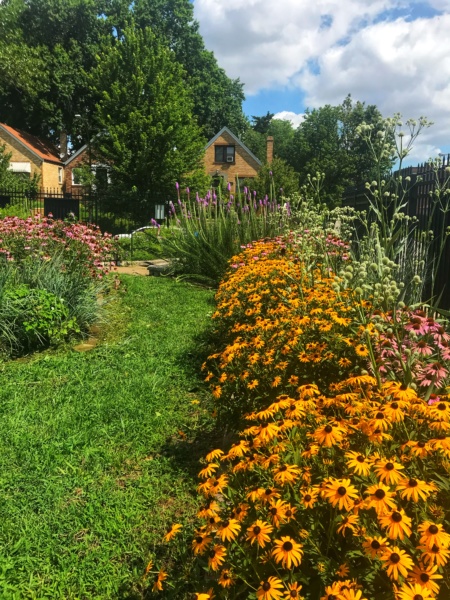
By employing nature-based solutions and active resource management, Pop Up Prairie addresses climate change, biodiversity, public health, and water and food security. Native plantings help mitigate natural disasters such as flooding by giving rainwater a place to be absorbed and stored and these gardens provide residents in underserved communities the opportunity to experience flora and fauna that they may not have had access to otherwise.
Educational “open house” days in the established gardens are an opportunity for the public to take tours and ask questions about native prairie plantings in urban areas. Attendees are encouraged to “rethink their green spaces and start thinking native” and often leave inspired to plant pollinator gardens in their own yards. Learn more about alternatives to manicured yards.
Pop Up Prairie manages over one acre of space across two locations. They rely on volunteers and corporate volunteer days to install and maintain the gardens. “If we plant it, we stay around and manage it,” said Leigh.
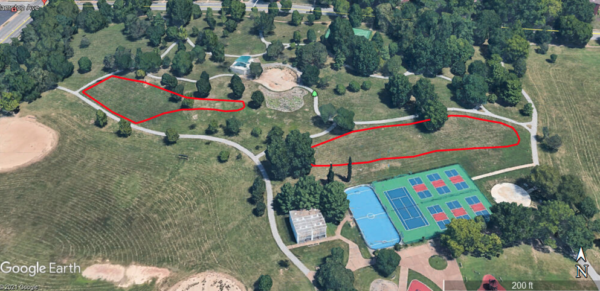
Pop Up Prairie is seeking grant opportunities to be able to install permanent educational signage at the gardens. Additionally, they would like to expand to North Riverfront Park in the North Riverfront neighborhood. The North Riverfront project proposal is a diverse shrub bottom that would provide critical habitat for pollinators and ducks along the Mississippi Flyway. If you would like to help Pop Up Prairie meet their funding goals, click here to make a donation.
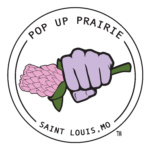 Pop Up Prairie is a participant in Give STL Day. Give STL Day is powered by the St. Louis Community Foundation and will take place on May 5, 2022.
Pop Up Prairie is a participant in Give STL Day. Give STL Day is powered by the St. Louis Community Foundation and will take place on May 5, 2022.

